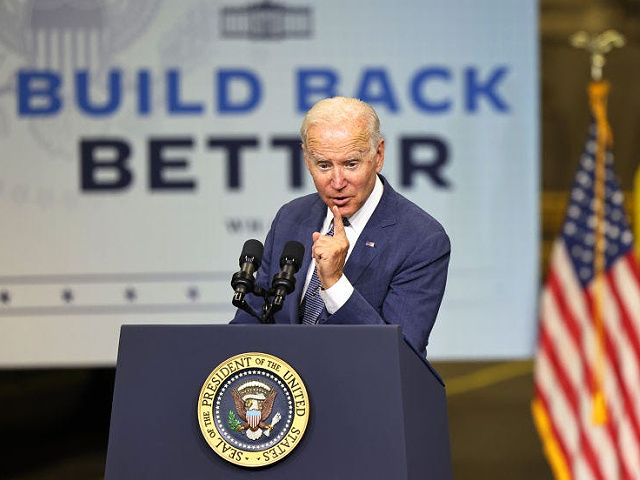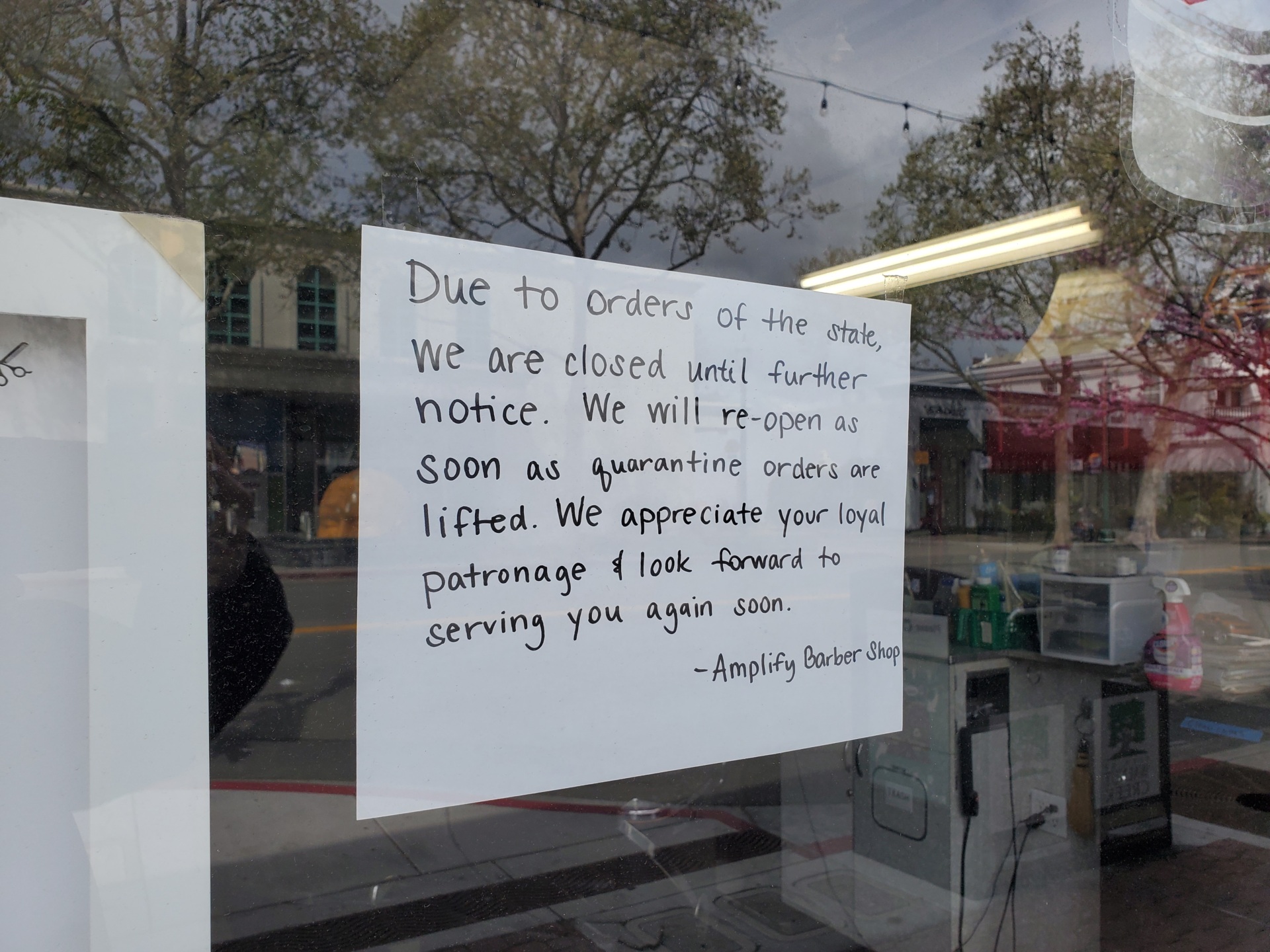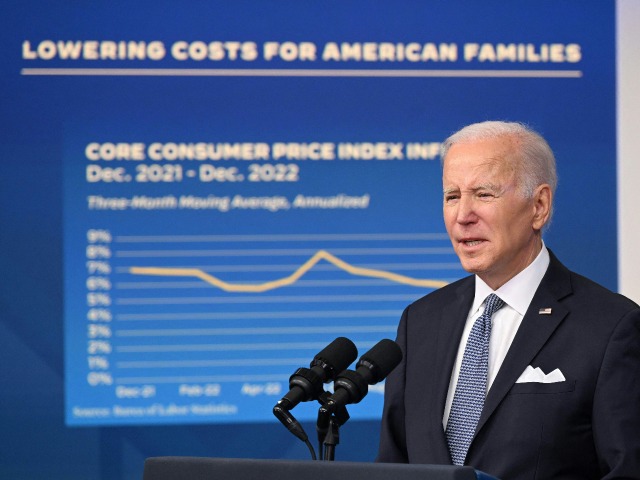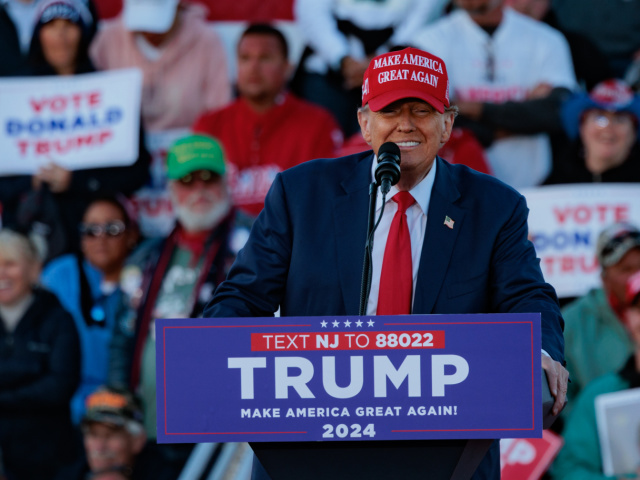
American progressives are in a state of high dudgeon, gnashing their teeth at the realization that the American people favor Donald Trump's economy over Joe Biden's.
The post Breitbart Business Digest: The Real Reason Americans Prefer Trump’s Economy to Biden’s appeared first on Breitbart.
The Progressive Fury at the Public’s Preference for Trump’s Economy Over Bidenomics
American progressives are in a state of high dudgeon, gnashing their teeth at the realization that the American people favor Donald Trump’s economy over Joe Biden’s. This strikes them as utterly irrational, and they’ve spent months concocting elaborate theories to explain why Americans just can’t see that we supposedly live in an economic utopia under Biden. But the reality is much simpler: we were better off under Trump.
In the annals of economic blunders, Biden’s presidency is fast securing a prominent spot. Despite the administration’s self-congratulatory rhetoric on job creation and recovery, the average American remains unimpressed.
A recent Bloomberg/Morning Consult poll reveals that 51 percent of respondents felt better off financially under Trump, compared to a meager 32 percent under Biden.
The issue at the forefront? The relentless surge in the cost of living, a direct consequence of Biden’s inflationary policies.
Inflation: A Biden-Made Crisis
Let’s be clear: inflation is Biden’s albatross. The president inherited an economy already on the mend, yet he pushed through a $1.9 trillion American Rescue Plan, ignoring clear warnings about its inflationary risks.
The Wall Street Journal’s James Freeman recently pointed out that Biden’s initial economic plan was based on serial deceptions:
His inauguration occurred during a stretch of fast growth and low inflation. Real GDP was growing at an annual rate of better than 5% during the quarter he took office. It has grown more slowly in the years since and of course with the additional plague of rising prices.
This is not just an issue of deceptive rhetoric. The deceptions of 2021 actually helped cause the resulting inflation. That’s because Mr. Biden’s false portrayal of an economy in distress was the justification for the spending spree he initiated despite warnings from prominent Democratic economists. The bogus claims have had highly destructive consequences.
In other words, Biden falsely claimed that Trump’s policies had left the economy in ruins during the campaign, and then he exaggerated the economic peril when he took office to justify a spending spree designed to placate his leftwing base and claim credit for a recovery already in motion. The Democrats feared that if the economy were allowed to recover without a big Biden bill, people might actually credit Trump with the rebound.

President Joe Biden gives a speech on Build Back Better agenda on October 25, 2021, in Kearny, New Jersey. (Michael M. Santiago/Getty Images)
It’s almost like a children’s fairytale aimed at teaching the dangerous consequences of dissembling. Biden’s first lie about the state of the economy at the time of the election more or less required his second lie about the necessity of a huge stimulus bill in 2021, which in turn required him to claim that inflation wasn’t a danger as it got started and then flip to claiming it would quickly fade once it was undeniable. And then, every time inflation dipped, Biden claimed inflation was defeated—only to see it re-emerge, forcing Biden into concocting fictions about “Putin’s price hikes” and “greedflation.”
More recently, Biden has repeatedly and falsely claimed that inflation was nine percent when he took office. In reality, the consumer price index was up just 1.4 percent year-over-year in January 2021. When the White House was confronted with this lie, it just fabricated another blameshifting tale about the “factors” of inflation being in place when Biden took office.
The Job Growth Mirage and the Income Dearth Reality
Biden’s cheerleaders love to tout the creation of 15 million jobs and a low unemployment rate. Most of those jobs, however, were not created so much as recovered due to the re-opening of the economy. We were always going to hire back millions of people into jobs once the shackles—in some cases, literally—came off the doors of American businesses.
Biden’s record looks less impressive when it is remembered that at the end of the third year of his presidency, the unemployment rate was 3.7 percent; and it was actually a bit lower (at 3.6 percent) in the third year of the Trump presidency. And while Biden’s supporters love to claim that Trump’s record on jobs is terrible because of the lockdown job losses, most Americans see this as the partisan hackery it is.
Americans know the 2020 spike in unemployment was not a result of Trump’s economic policies but because of the pandemic lockdowns. They probably suspect—correctly—that these pandemic job losses would have been even higher if a Democrat had been in the White House because the left was eager to close down the economy while Trump was somewhat reluctant to do so. Would we have been better off if Trump’s reluctance had instead been resistance to lockdowns? Probably. But that’s not a policy Biden can plausibly claim he would have supported.

Signs in the window of a business on Main Street in Walnut Creek, California, on March 24, 2020, announcing the store’s closure due to the COVID-19 pandemic lockdown orders. (Smith Collection/Gado/Getty Images)
More importantly, Americans understand that their real incomes—that is, incomes after inflation—were far more improved under Trump than Biden. According to a devastating analysis by Bloomberg News running under the headline “Voters Prefer Trump Over Biden on Economy. This Data Shows Why,” real disposable personal income per capita under Biden has improved at only about a quarter of the pace set during the Trump years.
In the first three years of Trump’s presidency, real disposable income rose seven percent, compared to just two percent under Biden. Looking at all four years of Trump’s presidency, income rose 12.4 percent, whereas during Biden’s term, it’s expected to rise just 2.9 percent, assuming continued economic growth this year.
“Real disposable personal income per capita — money available to spend after taxes and adjusted for inflation — is a clear measure of standard of living. Under Biden, it’s improved, but on average only at about a quarter the pace set during the Trump years,” Bloomberg reports.
And then there is Biden’s inflation record. Consumer prices are cumulatively up 19.5 percent since Biden took office. At this point in Trump’s presidency, Americans had experienced cumulative inflation of just 5.6 percent. In short, we’ve had 350 percent more inflation under Biden than under Trump.

President Joe Biden speaks about the economy on January 12, 2023, in Washington, DC. (ANDREW CABALLERO-REYNOLDS/AFP via Getty Images)
Both presidents ran up huge deficits to finance COVID relief spending. Trump backed the $1.8 trillion CARES Act in March 2020, while Biden backed the $1.9 trillion American Relief Plan in March 2021. But the timing mattered. When Trump’s stimulus spending was passed, the economy was in free fall due to the lockdowns and social distancing. As a result, it didn’t pump up inflation much but did dramatically reduce unemployment and ignite growth. When Biden’s was passed, the economy was already growing rapidly—so the payoff in terms of growth and jobs was smaller while the inflation cost was enormous.
According to a survey from ABC News and IPSOS, Biden’s approval rating languishes at 35 percent, with 57 percent disapproving. Forty-three percent of Americans report being financially worse off under his administration, and a staggering 81 percent believe he is too old for another term.
On critical economic issues, Trump holds a commanding lead: a 14-point advantage on the economy and inflation. This preference isn’t irrational; it’s a straightforward assessment of who has delivered better economic results.
The Future of Interest Rates and Economic Growth
Federal Reserve Chair Jerome Powell, recently sidelined by COVID-19, has repeatedly said that bringing inflation down to the Fed’s two percent target will require patience. And he’s confident that inflation will fall to the Fed’s target—and that it will not require a serious economic downturn or outright recession.
Yet the root causes of our inflation woes—Biden’s early spending spree and his insistence at keeping deficits at levels unseen outside of wars, natural disasters, or serious recessions—remains unaddressed. Without a fundamental policy shift, inflation will persist, and interest rates are unlikely to fall, prolonging economic pain for everyday Americans.

Former President Donald Trump speaks at a campaign rally on May 11, 2024, in Wildwood, New Jersey. (Michael M. Santiago/Getty Images)
Progressives may continue to rationalize Biden’s economic policies, but the facts are indisputable. Under Trump, Americans enjoyed faster income growth, lower inflation, and a more robust economic environment. The preference for Trump’s economic stewardship is not nostalgia but a clear-eyed recognition of superior economic outcomes.
As we approach the 2024 election, voters are signaling a desire for a return to policies that prioritize economic growth and stability. The numbers and personal experiences of Americans underline the failures of the current administration and the urgent need for a change in direction.




